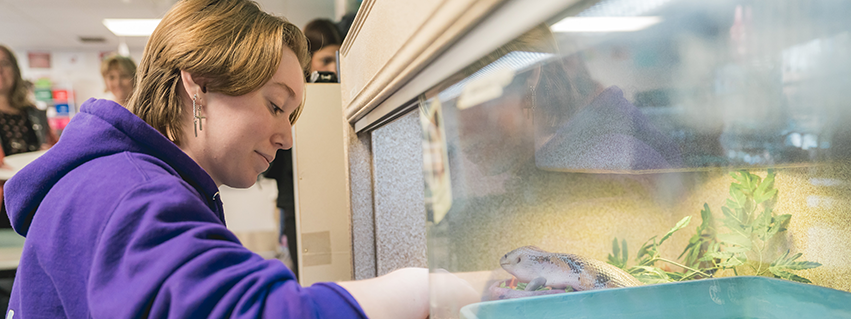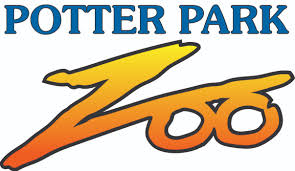
Animal Science & Zoo Management
This program is designed for juniors and seniors who have career interests in agriculture, animal science/zoology, life sciences, veterinary medicine, conservation, environmental education or related fields.
This is an in-depth, hands-on learning experience in a real-world setting—Potter Park Zoo. In addition to rigorous classroom work, students will be expected to actively participate in zoo activities and daily animal care. Students must be willing to tolerate working in various weather conditions.
Rain jackets are provided!
Program Overview
Course Information
Program Location
Potter Park Zoo (Shuttle Available)
Session Offered
AM.PM
Average Lecture Days/Week
3-4 Days
Average Lab Days/Week
1-2 days
Homework
2-3 days per week
Required Reading
- College Level Textbooks and or Workbooks
- Less than 25 pages per week
Success Indicators
- Hands on learner
- Enjoys working with animals
- Enjoys biology
- Strong math skills
- Effective in a team and individualized setting
College Credit
None
Academic Rigor
4 out of 5
Capital Region Technical Early College (CRTEC)
None
Course Outcomes
Students learning outcomes include, but are not limited to:
- Exposure to a variety of animal related career opportunities
- Development of career readiness skills and creation of resumes, cover letters, etcetera
- Understand the progression of zoos throughout history and recognize the impact that the Association of Zoos and Aquariums has on the present activities and future of zoos
- Investigate current conservation issues, understand their effect on animals, and discover ways to reduce our impact
- Learn how to properly handle education animals and use them to develop and present an education program
- Identify parts of animals bodies, both internally and externally
- Understand and compare processes and interaction between animal body systems
- Understand the characteristics of a healthy system and what happens when disease or injury occurs
- Learn hands on veterinary skills such as physical exams, injections, surgical sutures, and fecal analysis as well as skills in veterinary office management, such as how to maintain an inventory, manage a schedule and interact with clients
- Study the principles of animal welfare and behavior to design training plans, enrichment items and care guidelines for example species
- Learn principles of exhibit design to design a model enclosure that meets the needs of animals, staff and the public
- Shadow keepers to learn about their duties at Potter Park Zoo
- Learn principles and advances in the field of agriculture
- Participate in the National FFA organization through meetings and competitions
Certifications
- Red Cross First Aid
- Pet First Aid
- San Diego Global Academy Certifications
- Animal Welfare
- Training and Operant Conditioning
- Safe Handling and Restraint
- Zoonotic Disease Prevention
- Record Keeping
Student Leadership
Students have the opportunity for leadership, competition, and community service through membership in FFA and volunteer opportunities at the zoo.
Career Outlook
Careers
- Animal Caretaker
- Animal Scientist
- Animal Breeder
- Zoologists & Wildlife Biologist
- Agricultural Journalist
Median Wage
- Animal Caretaker: $15.00 Hourly, $31,200 Annual
- Animal Scientist: $33.72 Hourly, $70,140 Annual
- Animal Breeder: $22.86 Hourly, $47,540 Annual
- Zoologists & Wildlife Biologist: $33.94 Hourly, $70,600 Annual
- Agricultural Journalist: $30.59 Hourly, $63,618 Annual
Employment Outlook (Average)
- Animal Caretaker: 9%
- Animal Scientist: 5-8%
- Animal Breeder: 2-4%
- Zoologists & Wildlife Biologist: 2-4%
- Agricultural Journalist: 4%

